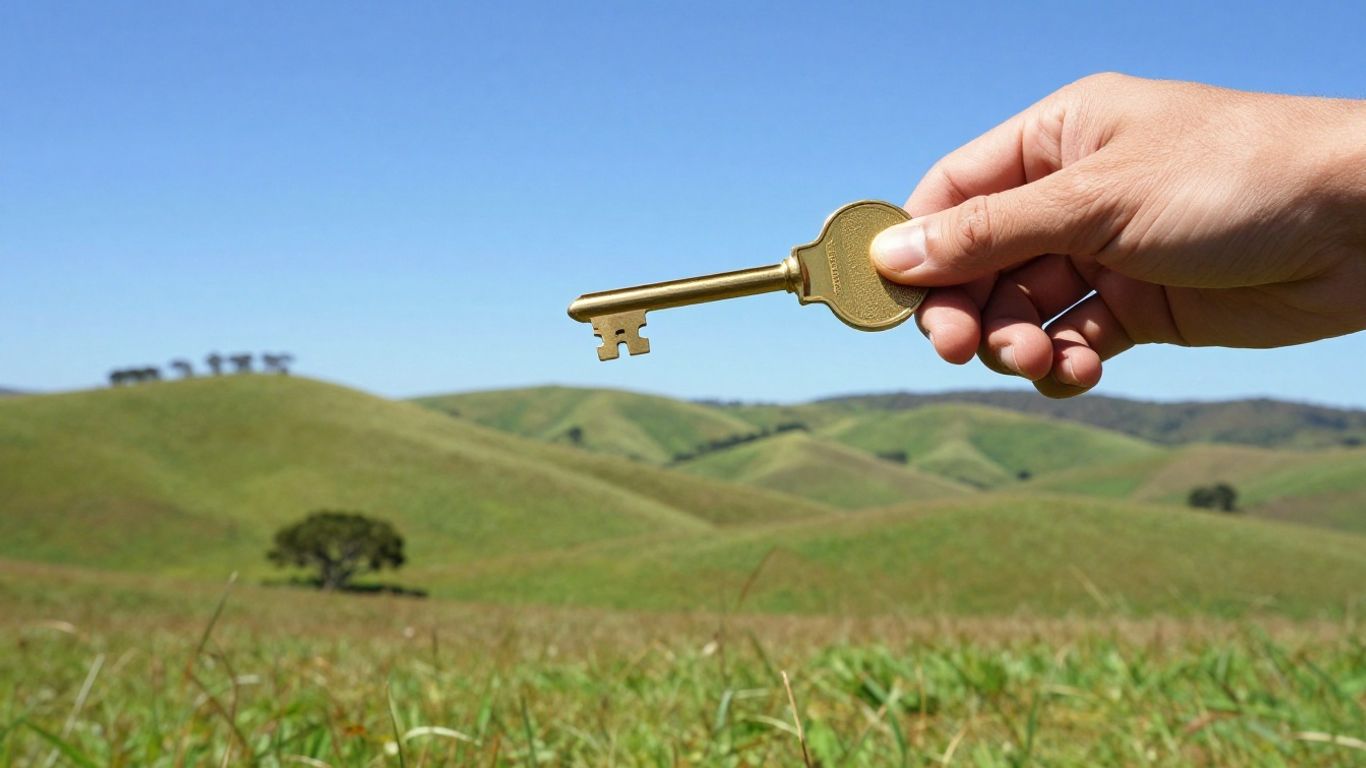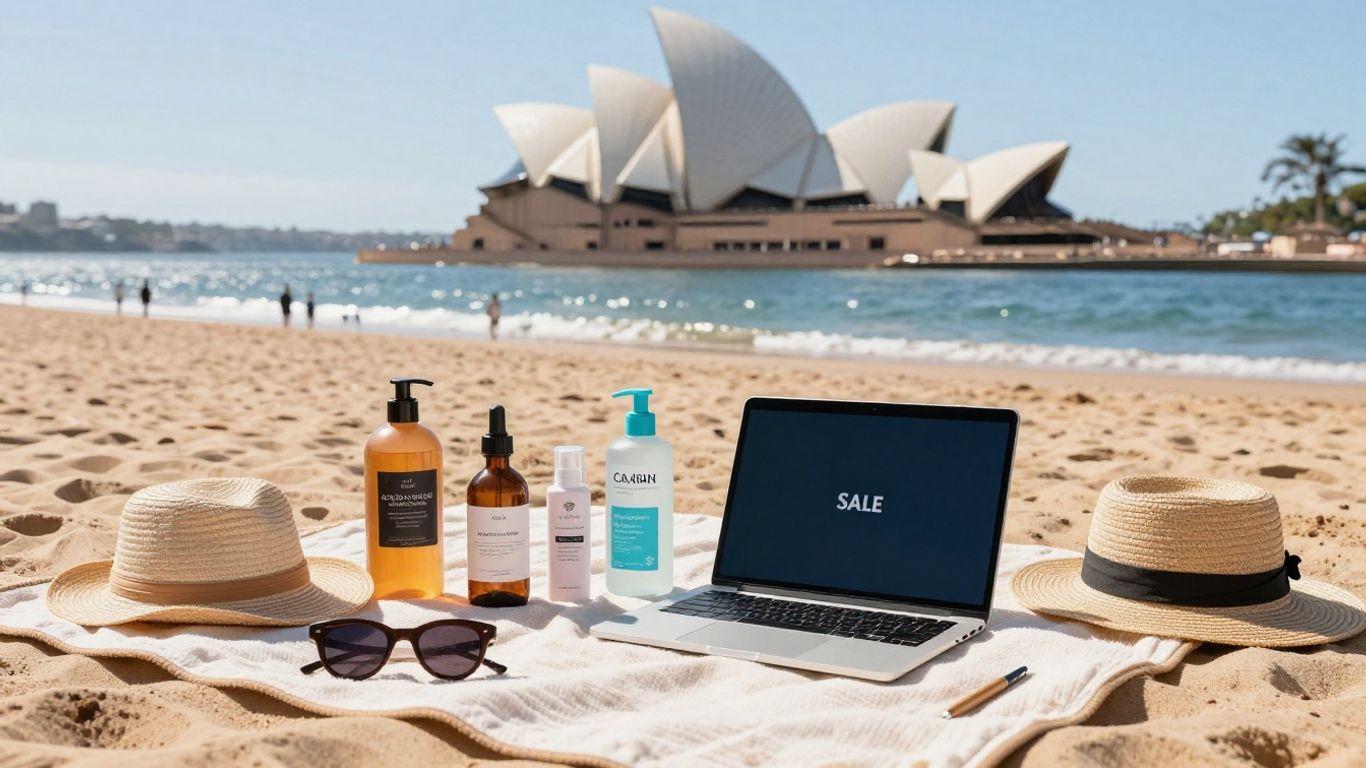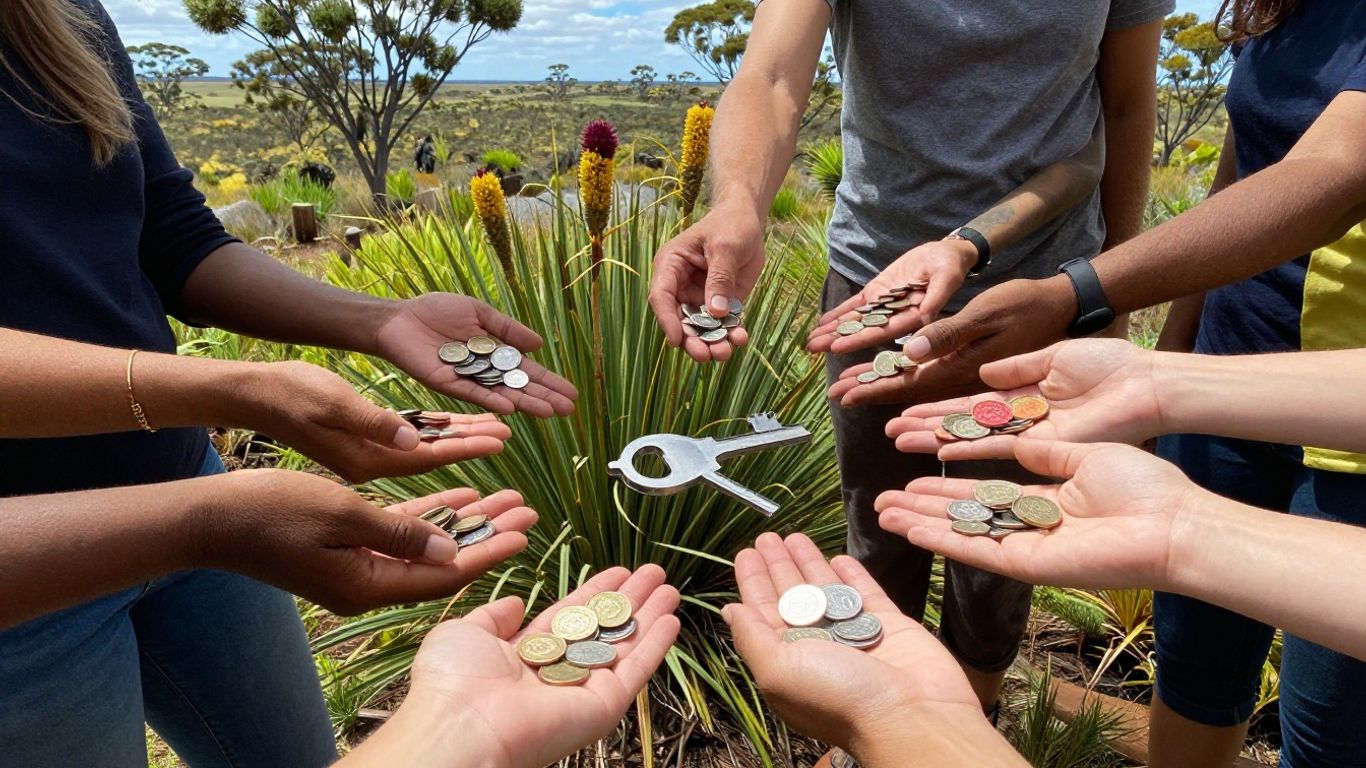Thinking about starting your own gig from home in Australia? It’s a pretty popular move these days, with heaps of Aussies ditching the daily grind for a more flexible setup. You can work from your kitchen table, your shed, or even the couch – whatever floats your boat. Plus, no more battling traffic! But, it’s not just about the freedom; it’s about picking the right idea that actually works. We’ve looked into some top home-based business ideas Australia folks are getting into, so you can get a head start on your own venture.
Key Takeaways
- Many Australians are choosing home-based businesses for flexibility and to be their own boss.
- Over half of Australian small to medium enterprises start and operate from home.
- The best home business for you will depend on your skills and what you enjoy doing.
- You’ll likely need to register your business and get an Australian Business Number (ABN).
- Costs to start can vary greatly, from a few hundred dollars for a consultant to thousands for an e-commerce store.
1. Affiliate Marketing
Affiliate marketing is a pretty straightforward way to make money from home. Basically, you promote other companies’ products or services, and when someone buys through your unique link, you get a commission. It sounds simple, and it can be, but building a real income from it takes some effort. You’re not just slapping links everywhere; you’re building trust with an audience.
How it Works
It all starts with choosing a niche you’re interested in. Then, you find companies or products that fit that niche. You sign up for their affiliate programs, which gives you special links. You then share these links through content you create – maybe blog posts, social media updates, or even videos. When someone clicks your link and makes a purchase, the company tracks it back to you, and you get paid.
Getting Started
- Pick your niche: What are you passionate about? What do you know a lot about? This is key to creating content people will actually want to read or watch.
- Find affiliate programs: Look for programs related to your niche. Many big companies have them, and there are also networks like Commission Factory or ShareASale that group lots of different programs together.
- Create content: This is where the real work is. You need to produce helpful, engaging content that naturally includes your affiliate links. Think reviews, tutorials, or comparison posts.
- Drive traffic: People need to see your content. This means learning about SEO (Search Engine Optimisation) to get found on Google, or using social media to get your posts seen.
Key Considerations
Building a successful affiliate marketing business isn’t a get-rich-quick scheme. It requires consistent effort in creating quality content, understanding your audience, and optimising your approach. Think of it as building a relationship with your followers, where you genuinely recommend products you believe in.
It’s important to be upfront with your audience about using affiliate links. Transparency builds trust, which is vital for long-term success. You’ll also need to keep an eye on what’s working and what’s not, adjusting your strategy as you go. For those looking to start an online store or build a brand, affiliate marketing can be a great complementary strategy, or even a primary income source if done right. Remember, the Australian market is growing, so there’s plenty of opportunity out there for those willing to put in the work.
2. Artistic Content Production

If you’ve got a creative streak, turning that into a home business is totally doable. Think about what you love doing – maybe it’s painting, drawing, making music, or even digital art. There’s a market for all sorts of creative stuff these days.
Selling Your Art
So, you’ve made some awesome art. Now what? Well, you need to get it out there. This means more than just creating; you’ve got to put in the effort to promote your work, build a bit of a brand around yourself, and actually chat with people who might like what you do. Social media is a big one for this, but don’t forget about local art shows or online spots like Saatchi Art. It’s all about getting your creations seen by the right eyes.
Creating Digital Art Assets
Beyond selling finished pieces, you could also get into making digital assets. Think about things like 3D models for video games or movies. If you’re good with that sort of software, there’s a real demand for unique assets that game developers and filmmakers need. It’s a bit more niche, but can be quite rewarding if you’ve got the skills.
Online Courses and Tutorials
Got a skill you can teach? Creating online courses is another avenue. You could film yourself demonstrating a technique, explain how to use certain software, or even teach a creative process from start to finish. Platforms like Udemy or Skillshare are popular for this. It takes time to film and edit, but once it’s up, it can be a source of income.
Building a creative business often means wearing a few different hats. You’re the artist, but you’re also the marketer, the salesperson, and the customer service rep. It’s a lot, but when you’re passionate about what you’re doing, it feels less like work and more like a calling.
3. Web Design Agency
Setting up a web design agency from home is a solid choice for anyone with a knack for digital aesthetics and functionality. You’re basically building online homes for businesses, making them look good and work smoothly. It’s a field that’s always in demand, especially with so many Aussie businesses needing a stronger online presence. You don’t need a massive office; your spare room can be your headquarters.
What You’ll Need
To get started, you’ll want a decent computer, reliable internet, and some design software. Think about things like Adobe Creative Suite or even more budget-friendly options like Figma or Canva for simpler projects. Knowing your way around content management systems (CMS) like WordPress is also a big plus. You’ll also need to think about how you’ll manage projects and communicate with clients.
Getting Your First Clients
This can be the trickiest part. Start with your network – friends, family, former colleagues. Let everyone know what you’re doing. Offer a good deal for your first few clients to build a portfolio. Online platforms can also be useful, but be prepared for competition. Building a strong online presence for your own agency is key, too. Think about your own website and social media.
Pricing Your Services
Pricing can be a bit of a balancing act. You could charge by the hour, by the project, or even offer retainer packages for ongoing work. It’s important to research what others in the industry are charging, but also to factor in your own costs and the value you provide. Don’t undervalue your skills!
It’s easy to get caught up in the technical side of things, but remember that good communication and understanding your client’s business goals are just as important as the design itself. A happy client often leads to repeat business and referrals.
Key Steps to Launch
- Define your niche: What kind of websites will you focus on? Small businesses, e-commerce, specific industries?
- Build your portfolio: Showcase your best work, even if it’s personal projects initially.
- Set up your business structure: Decide if you’ll be a sole trader, partnership, or company.
- Create a professional website: This is your digital shopfront.
- Develop a marketing strategy: How will you reach potential clients?
- Network: Connect with other professionals and potential clients.
Starting a web design agency from home means you have the flexibility to set your own hours and work on projects you’re passionate about. It takes effort, but the rewards can be significant.
4. Cleaning Business
You know, cleaning might not sound glamorous, but there’s a solid demand for it here in Australia. People are busy, and let’s be honest, not everyone enjoys scrubbing toilets or dusting skirting boards. A recent NAB survey even showed that most Aussies aren’t cutting back on domestic help, even when times are a bit tight. That means there’s a consistent market for a reliable cleaning service.
Getting Started
Starting out is pretty straightforward. You can literally begin from your kitchen table, managing bookings and client calls. As your business grows, you can hire other cleaners to do the actual work while you focus on the admin side of things. It’s a classic way to build something from the ground up.
What You’ll Need
- Reliable cleaning supplies: Think eco-friendly options if you want to appeal to a growing market that prefers non-toxic products. This can be a real selling point.
- Transportation: You’ll need a way to get yourself and your gear to clients’ homes.
- Insurance: Definitely get some business insurance sorted. It’s a must-have to protect yourself and your clients.
- A good attitude: Being punctual, trustworthy, and thorough goes a long way.
Making it Shine
Think about what makes your service stand out. Maybe you specialise in end-of-lease cleans, or perhaps you focus on using only natural products. Offering a range of services, from a quick tidy-up to a deep spring clean, can also attract a wider customer base. Remember, word-of-mouth is powerful, so doing a top-notch job every time is key to building a strong reputation.
5. Cash Bundle Envelope System
You know, there’s a whole bunch of people out there who are really into this thing called ‘cash stuffing’. It’s basically a way to budget your money by using physical envelopes for all your different expenses. Think of it like a super organised, hands-on approach to managing your finances. And get this, some folks who design these custom envelopes are actually making a killing, earning hundreds of thousands of dollars a year just by selling their creations on places like Etsy. It’s pretty wild when you think about it.
Why is it so popular? Well, people want to feel in control of their spending, right? This system forces a bit of discipline. When you’ve got someone putting out really nice, well-made envelopes, people are happy to pay a bit extra for that quality and aesthetic. It’s not just a passing fad; it’s a genuine business chance that you can get going with not much money to start.
Imagine taking something you enjoy making, like custom envelopes, and turning it into a business that actually helps people sort out their money. That’s how you build something that sticks around.
Getting Started
- Source your materials: You’ll need cardstock or sturdy paper, a good cutting tool (like a craft knife or a paper trimmer), a scoring tool, and a strong adhesive. Consider different colours and patterns to appeal to a wider audience.
- Design your envelopes: Keep them practical but also attractive. Think about different sizes for different needs – maybe a smaller one for coffee money and a larger one for groceries.
- Create a product range: Offer plain envelopes, custom-designed ones, or even themed sets. You could also offer related items like budget trackers or savings challenge printables.
- Set up your online shop: Platforms like Etsy are great for this, but you could also consider your own simple website.
Key Considerations
- Quality: Make sure your envelopes are durable and well-constructed. People are paying for a tangible product, so it needs to hold up.
- Pricing: Research what similar products are selling for. Factor in your material costs, time, and the perceived value of your designs.
- Marketing: Use social media, especially visual platforms like Instagram and Pinterest, to showcase your creations. High-quality photos are a must.
People are looking for tangible ways to manage their money better. Offering a well-crafted, aesthetically pleasing product that solves a common problem can be a really solid business idea. It taps into a desire for control and organisation in a simple, physical format.
To get your business off the ground, you’ll want to look into setting up your finances properly. Understanding how to manage the money coming in and going out is key. You might also want to explore financial tools and templates to help you stay organised from the start. Making sure your pricing is right is also important, so research payments and invoicing to see how others handle transactions. Don’t forget about tax obligations, which are a part of running any business in Australia. Finally, consider how you’ll market your business to reach potential customers.
6. Freelancing Business
If you’ve got a skill or a service to offer, freelancing is a fantastic way to start a business from home. It’s all about selling your time and know-how. Think about what you’re good at – maybe writing, graphic design, social media management, or even something like bookkeeping. Businesses are always on the lookout for people who can help them out without needing a full-time employee. You can set up a simple website or use platforms that connect freelancers with clients. It’s a flexible gig, and you can often pick and choose the projects that interest you most.
Leverage Your Existing Skills
Your current job might give you skills that are in demand. If your contract allows, you can offer these services independently. This could be anything from technical support to language translation. The beauty of this is you’re not starting from scratch; you’re building on what you already know. Many people find success by offering services like virtual assistance or digital marketing.
Finding Your Niche
It’s a good idea to narrow down what you do. Instead of being a generalist, becoming known for a specific service can attract more clients. For example, instead of just ‘writing’, you could focus on ‘writing website copy’ or ‘creating blog posts for tech companies’. This makes you stand out.
Getting Your First Clients
Getting those initial clients can feel like the hardest part. You might need to offer a slightly lower rate at first, or even do a small project for free, in exchange for a good testimonial. Word-of-mouth is powerful, and positive feedback can really help build your reputation. Networking, even online, is key.
Potential Earnings
Freelancers can earn a decent income. For instance, freelance writers can make around $48,000 a year on average, with some specialisations like digital marketing or e-commerce writing being particularly sought after. It really depends on your skills, experience, and how much you work.
Starting as a freelancer means you’re your own boss, setting your own hours and choosing your projects. It’s a great way to build a business around your life, not the other way around.
Popular Freelancing Services
- Writing and Editing
- Graphic Design
- Web Development
- Virtual Assistance
- Social Media Management
- Bookkeeping
- Translation Services
- Online Tutoring
- Digital Marketing
This is a great option for parents or anyone needing flexible work, and it’s one of the many freelance and remote business opportunities available.
7. Consultancy
Got a knack for solving problems or a specific skill set that others need? Consultancy could be your go. It’s basically about sharing your knowledge and experience to help other businesses improve. Think of it like being a professional advisor. You can specialise in all sorts of areas, from marketing and finance to IT and human resources. The beauty of it is you can often start with what you already know and build from there.
Consulting Overview
This covers the general idea of what consultancy involves. It’s about identifying client needs and proposing solutions.
Business Performance
Here, you’d focus on helping businesses run more efficiently and effectively. This might involve looking at their operations, staff, and overall strategy.
Business Growth
If you’re good at spotting opportunities and developing strategies, this is for you. You’d help businesses expand their reach, find new markets, or increase their sales.
Business Health Check
This is like a check-up for a business. You’d assess different parts of the company to see what’s working well and what needs improvement. It’s a good way to get a broad view of a business’s situation.
Marketing Plan
If you understand how to get products or services in front of the right people, you can help businesses create solid marketing plans. This involves understanding target audiences and how to reach them.
Corporate Governance Structure
This is a bit more specialised, focusing on the rules and practices that guide how a company is run. It’s about ensuring accountability and fairness.
Starting a Social Enterprise
If you’re passionate about making a difference, you can consult on setting up businesses that have a social or environmental mission at their core. It’s about blending profit with purpose.
Business Plan
Many new and existing businesses need help putting together a formal business plan. This document outlines their goals, strategies, and how they plan to achieve them. Your input here is pretty vital.
Succession Plan
This involves helping business owners plan for the future, especially when it comes to handing over the reins, whether that’s to family or new management. It’s about ensuring the business continues smoothly.
Starting a consultancy from home means you’re selling your brainpower and time. It’s important to be clear about what you can do and who you can help. Setting your rates and understanding your market are key steps. You’ll also need to think about how you’ll find clients and manage your workload effectively. It’s not just about having the skills, but also about running it like a proper business.
When you’re looking at business ideas for Australia, consultancy offers a flexible way to use your existing skills. You can often start with minimal overheads, using your home office as your base. The key is to identify a niche where your knowledge is in demand and then market yourself effectively to potential clients. Building a good reputation through successful projects is also a big part of growing your consultancy practice.
8. E-commerce Store
Setting up an e-commerce store from your home in Australia is a fantastic way to reach customers far and wide. You don’t need a fancy shopfront; just a good idea and a way to get your products to people. It’s all about selling online, and with Australia’s love for online shopping, it’s a great market to be in.
Choosing Your Niche and Products
First things first, what are you going to sell? Think about what you’re passionate about or what problems you can solve for people. Maybe it’s handmade crafts, unique homewares, or even digital products like e-books or templates. It’s important to pick something you know a bit about, or are willing to learn about. You could even look into drop-shipping, where you sell products without holding any stock yourself. The supplier sends the item directly to your customer. This cuts down on the upfront costs and hassle of managing inventory.
Setting Up Your Online Store
Once you’ve got your products sorted, you need a place to sell them. There are heaps of platforms out there to help you build your own website. Think of places like Shopify, Wix, or Squarespace. They make it pretty straightforward to get a professional-looking online store up and running. You’ll need to think about how you’ll take payments and how you’ll get your products to your customers. Sorting out shipping is a big part of it, especially if you’re selling physical goods. Making sure your website is secure is also a must-do.
Marketing Your E-commerce Business
Having a great store is one thing, but people need to know it exists! Social media is a really easy and cheap way to get the word out. Figure out where your potential customers hang out online – maybe it’s Instagram, Facebook, or TikTok – and focus your efforts there. You can share photos of your products, run special offers, and chat with your customers. Building a presence on social media helps people connect with your brand. It’s better to do a good job on one or two platforms than to spread yourself too thin across many.
Getting your online store set up and running smoothly takes a bit of effort, but the flexibility and reach it offers are pretty amazing. It’s a real chance to build something for yourself right from home.
Here’s a quick rundown of what you might need to consider:
- Product Sourcing: Where will you get your products? Will you make them, buy wholesale, or use a drop-shipping supplier?
- Website Platform: Choose a user-friendly platform to build your store.
- Payment Gateway: How will customers pay you? Look into options like PayPal or Stripe.
- Shipping and Logistics: Plan how you’ll package and send orders.
- Marketing Strategy: How will you attract customers to your store?
Starting an online store is a big step, but it can be incredibly rewarding. It allows you to be your own boss and work from the comfort of your home.
9. Pet Sitter
Lots of Aussies love their pets, and when they head off on holidays or even just for a long day at work, they need someone reliable to look after their furry mates. This is where becoming a pet sitter can be a ripper home-based business idea. You’re basically offering a home away from home, or at least a friendly face popping in to feed the cat or take the dog for a walk.
Why Pet Sitting is a Good Gig
- Low Startup Costs: You don’t need much to get started – maybe just some good walking shoes and a reliable way to get around. Your own home might be enough if you’re offering overnight stays.
- Flexible Hours: You can often set your own hours, fitting it around your life. Need to be home for the kids’ school run? No worries, just book clients for later in the day.
- It’s Rewarding: If you love animals, this is a pretty great way to spend your time. Plus, happy pets mean happy owners, and that’s good for business.
Getting Started
- Join a Platform: Sign up for popular pet sitting apps like Mad Paws or Pawshake. These sites connect you with pet owners looking for sitters in your area. They handle a lot of the admin, which is handy.
- Define Your Services: Decide what you’ll offer. Will it be dog walking, home visits for cats, or overnight stays? You can even offer specialised services like administering medication if you’re comfortable.
- Set Your Rates: Look at what other sitters in your area are charging. You might start a bit lower to build up reviews and testimonials.
- Get Insured: It’s a good idea to look into public liability insurance. It protects you if anything unexpected happens.
Building Your Business
Building trust is key in this line of work. People are entrusting you with their beloved pets, so being reliable, communicative, and genuinely caring is super important. Getting good reviews on the apps is a great way to attract more clients. You might even start getting repeat business from happy owners who won’t go anywhere else.
The pet industry in Australia is massive, with heaps of people owning pets. When they travel, they need someone trustworthy to care for their companions. This creates a real demand for reliable pet sitters who can offer a more personal touch than a traditional kennel.
As you get more experience, you could even think about expanding your services. Maybe offer basic grooming or pet taxi services. It’s all about providing a good service that pet owners need and trust, which is a solid foundation for any home-based business in Australia Top Home-Based Business Ideas Australia.
10. Pet Groomer

If you’ve got a way with animals and a bit of patience, becoming a pet groomer from home could be a great gig. Lots of Aussies treat their pets like family, and they’re happy to spend a bit of cash to keep them looking and feeling good. It’s a pretty solid market, and you don’t need a massive setup to get started.
Getting Started
To kick things off, you’ll want to make sure you have the right setup. This means a dedicated space, maybe a spare bathroom or a section of your garage, that you can keep clean and safe for the animals. You’ll also need some basic grooming tools – think clippers, brushes, shampoos specifically for pets, and maybe a grooming table if you can manage it. Don’t forget towels, lots of them!
What You’ll Need
- Grooming Tools: Clippers, various comb attachments, brushes (slicker, pin), dematting tools, nail clippers, ear cleaner, pet-safe shampoos and conditioners.
- Safety Gear: Non-slip mats, muzzles (for nervous dogs), and possibly protective eyewear for yourself.
- Cleaning Supplies: Disinfectants, towels, waste disposal bags.
- A Good Attitude: Patience is key when dealing with animals, especially if they’re a bit anxious about grooming.
Building Your Client Base
Word of mouth is gold in this business. Start with friends and family who have pets. Offer them a good deal for their first groom in exchange for honest feedback and maybe a photo for your social media. You could also advertise on local community pages or even put up flyers at local parks or pet supply stores. As you build up a portfolio of happy pets, you can start charging a bit more and maybe even offer add-on services like teeth brushing or paw balm treatments. Remember, happy pets and happy owners mean repeat business and referrals, which is how you’ll really grow your [home-based business] in Australia.
People are really invested in their pets’ well-being, and a good groomer can become a trusted part of their pet care routine. It’s about more than just a haircut; it’s about making the animal comfortable and healthy.
Ready to Get Started?
So, you’ve seen there are heaps of ways to make a quid from your own place here in Australia. Whether you’re good with computers, love animals, or just enjoy making things, there’s probably a home business idea that fits. Remember, most small businesses start small, and lots of Aussies are already doing it and are pretty happy with how it’s going. It might take a bit of planning and some paperwork, but the freedom to be your own boss and ditch the commute is a pretty big deal. Have a think about what you enjoy and what you’re good at, and give it a crack. You might surprise yourself.
Frequently Asked Questions (FAQs)
Can I run a business from my home in Australia?
Starting a business from home in Australia is totally doable! Most councils are okay with it, but you might need to get some special permits. It’s a good idea to have a yarn with your local council to find out exactly what you need. If you’re renting your place, chat with your landlord too, as some rental agreements don’t allow for running a business.
Do I need to register a home-based business?
Yep, you sure do! Even if your business is just from your home, you still need to register it with the Australian Business Register and get an ABN (Australian Business Number). It’s a pretty straightforward process.
How much does it cost to start an Australian home-based business?
It really depends on what kind of business you’re starting! For example, if you’re going to be a consultant, you might only need a few hundred dollars to set up a home office. But if you’re thinking of an online shop, you might need to spend a bit more on stock upfront. Generally though, running a business from home is way cheaper than renting a shop or office space.
What are the best businesses to run from home in Australia?
There are heaps of fantastic business ideas you can run from home, but the trick is to find something that suits your skills and what people want to buy. If you’re good with words or have special knowledge, you could try freelancing or consulting. If you’re a bit artsy, maybe sell your creations online. Love animals? Pet sitting or grooming could be your go! The best business is usually the one you actually enjoy doing.
Can I claim business expenses on my tax return in Australia?
You can definitely claim expenses for your home business on your tax return, as long as you keep your receipts and the costs are directly related to running your business. The Australian Taxation Office (ATO) is pretty clear on this. You can also claim the cost of using a tax agent to help you out.
How should I take payments in my home business?
It’s a smart move to think about how you’ll get paid. You can set up a business bank account to keep your finances separate. For payments, you could use options like online payment gateways, direct bank transfers, or even cash if that works for your customers. Making it easy for people to pay you is key!





